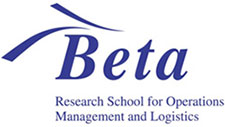On Tuesday, January 8, 2019, Alireza Hesaraki will defend his PhD thesis “Tactical & operational models for scheduling chemotherapy appointments”. This thesis has been supervised dr.ir. N.P. Dellaert and prof.dr. A.G. de Kok. The ceremony will take place in the Senaatszaal of the Auditorium Building at the Eindhoven University of Technology at 16:00 hrs.
Abstract
Chemotherapy is one of the major treatments for cancer, which is the first cause of death in The Netherlands. Despite the prevalence of cancer, chemotherapy services have historically been developed and managed on an ad hoc basis. We study appointment scheduling problems in outpatient chemotherapy while focusing on actual drug administration, i.e., the nursing step of the service. By incorporating the strict time requirements of pharmacy and oncologists, we can focus on optimizing infusion schedules for effective and efficient use of nursing resources based on various criteria pertaining to patients, nurses, and the clinic. We study two different approaches for responding to appointment requests: online versus offline scheduling.
In online scheduling, the clinic informs the patient about the day and time of the next appointment, as soon as it receives the appointment request or within 24 hours. We design an appointment template and scheduling rules, where we incorporate the interests of the stakeholders:
- starting the appointments according to strict time limitations of pharmacy and oncologists
- completing last appointments on the day as early as possible for nurses
- little waiting time for patients as a result of coordinating the tasks of other stakeholders
- new patients getting their first appointment quickly
- returning patients being treated neither too early nor too late: without side effects and diminishing effects
- little overtime and idle time for the clinic
In offline scheduling, the clinic collects the appointment requests made for an intended day in the near future. Since there is more information available than in the online scheduling situation, the resulting schedule has better performance for key indicators. For example, the clinic can adjust nursing hours allocated on that day by assigning extra nurses to other parts of the hospital or asking for support nurses on busy days. Thus, the hospital can match resource allocation with demand. However, the clinic cannot inform patients about the time of their appointments until few days before the appointments.
In either approach, we attempt to balance the workload of nurses and have few during appointment nurse changes when assigning nurses to patients. Moreover, our models may be used for other similar services, such as kidney dialysis.
We recognize the following four steps to use our models in practice for improving patient flow and other operational aspects of the chemotherapy service:
- reconsidering relevant strategic decisions that significantly impact operations:
- online versus offline scheduling
- having the lab test and oncologist visit on the same day as infusion or the day before versus a combination of both
- adjusting the Enterprise Resource Planning (ERP) system in order to extract historical data for reliable model information
- interfacing the needed mathematical software with the ERP system
- motivating care providers, especially nurses, for the more directive way of delivering service, in contrast to ad hoc decision making
